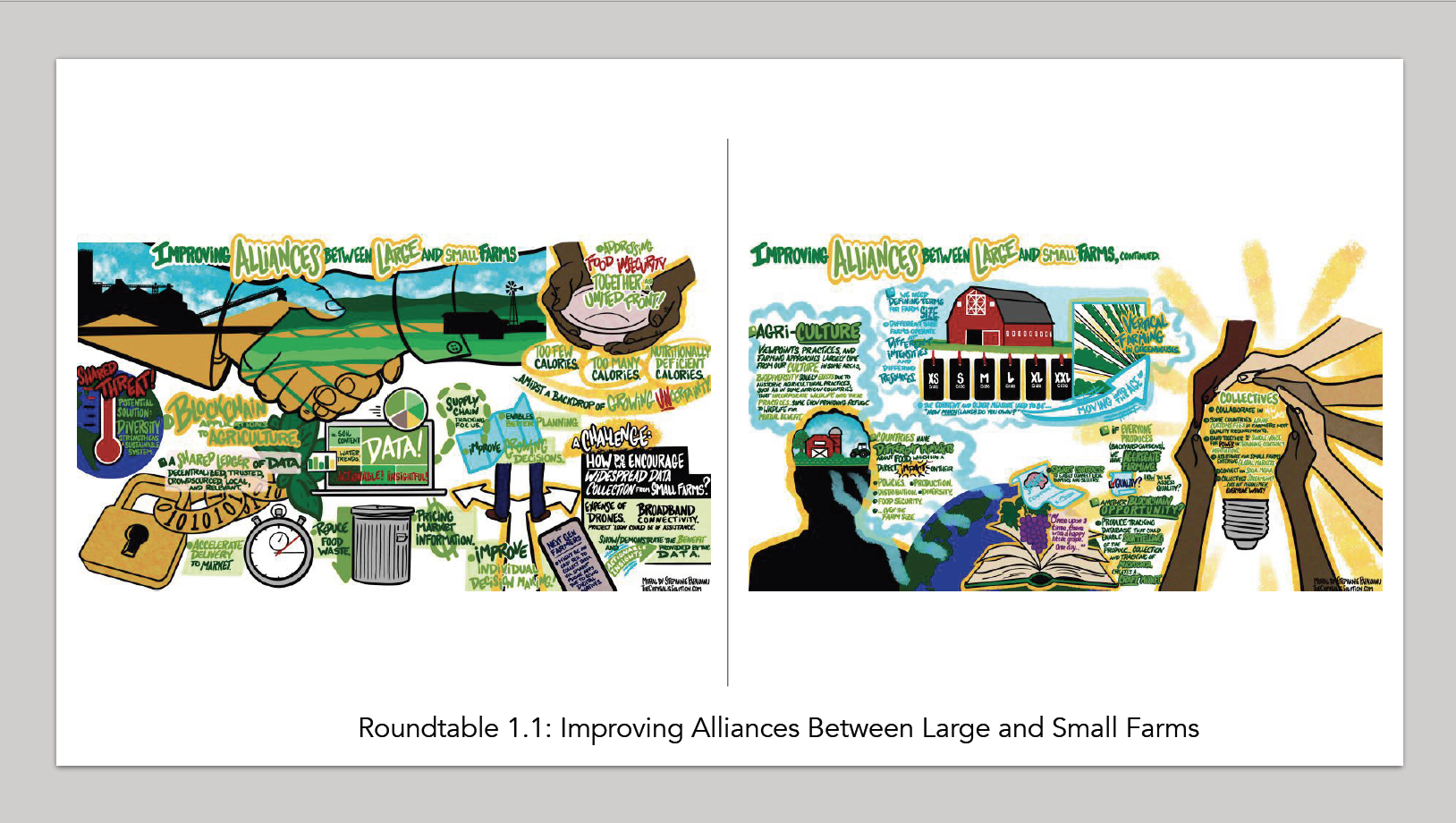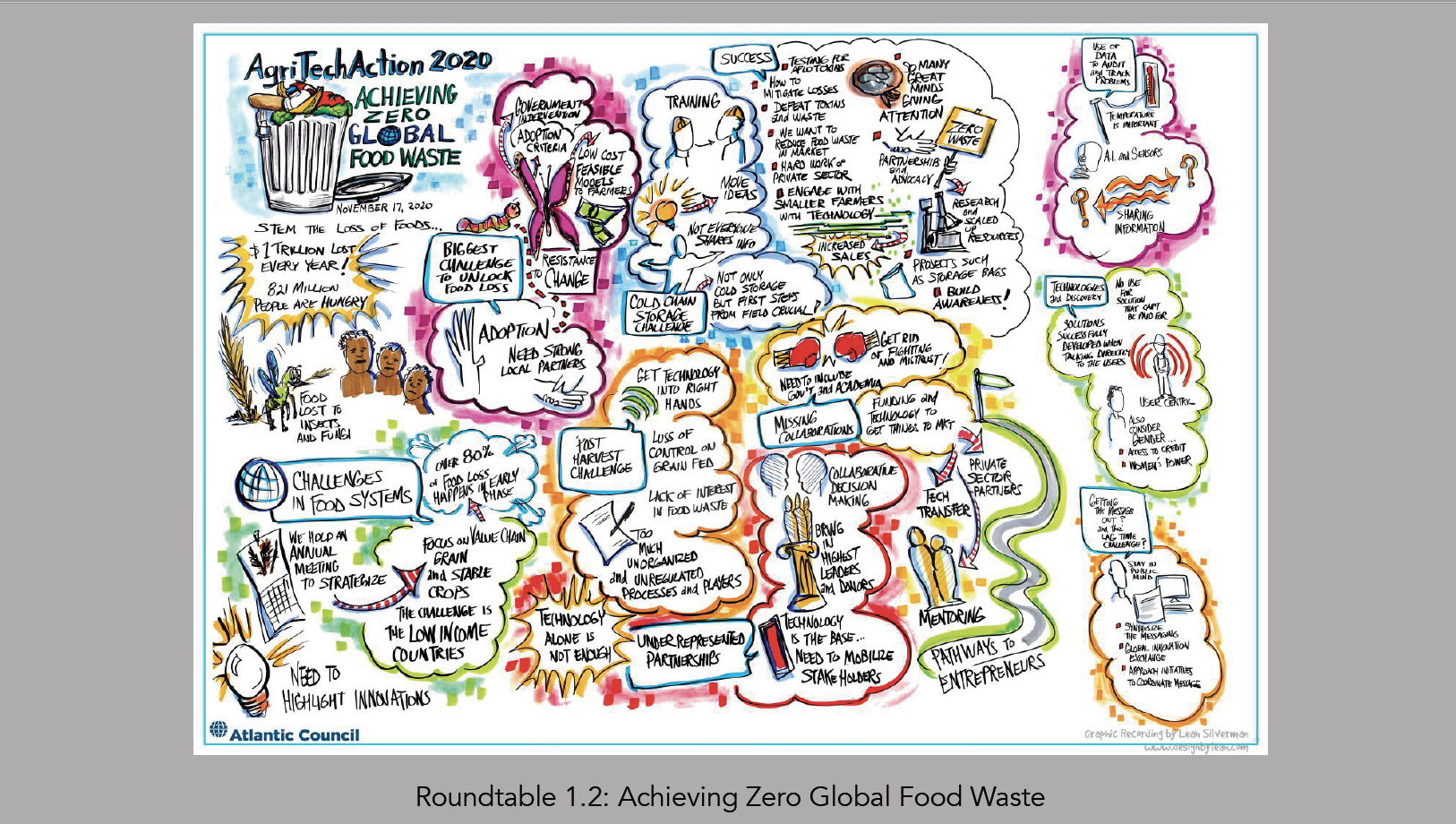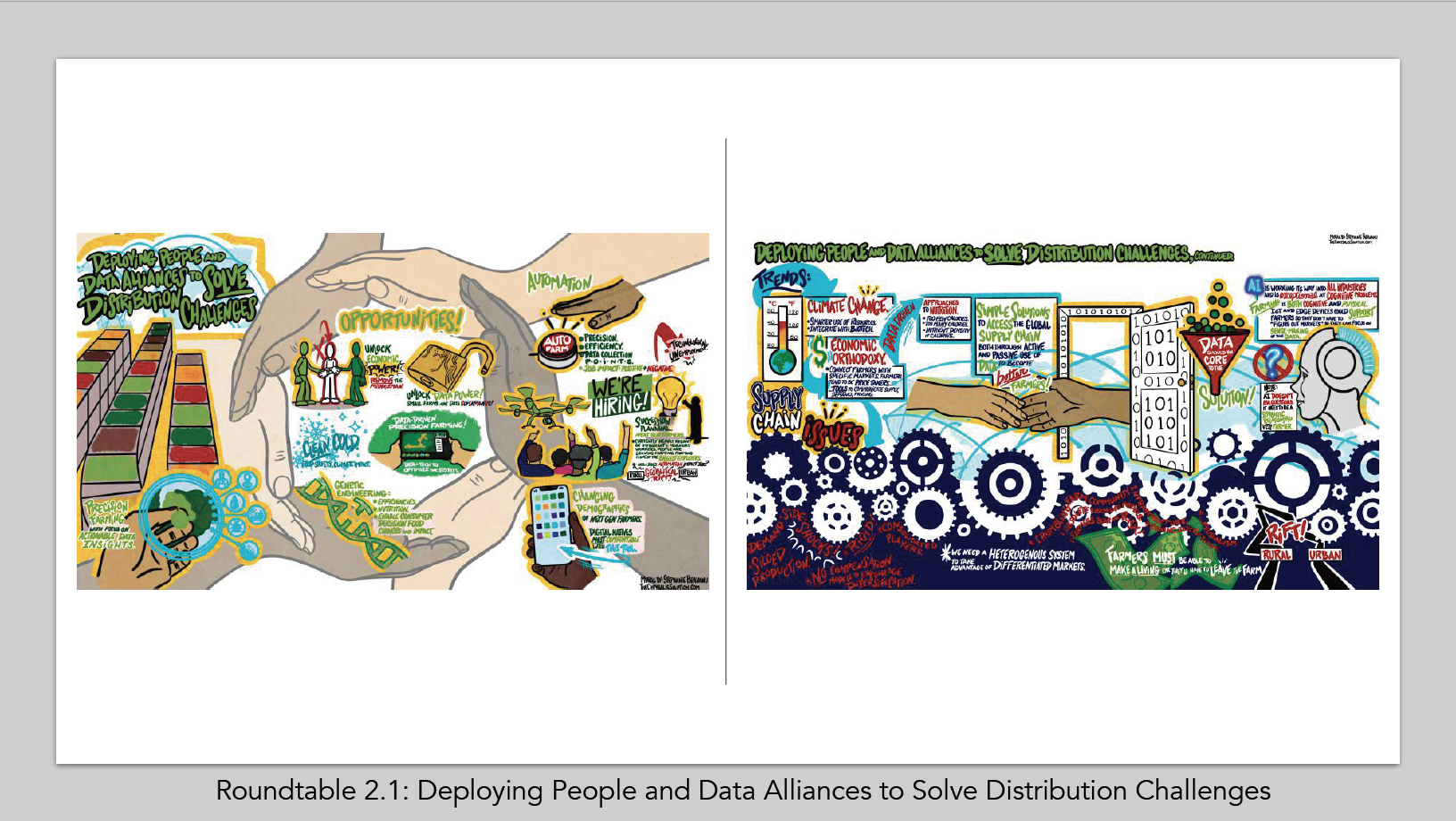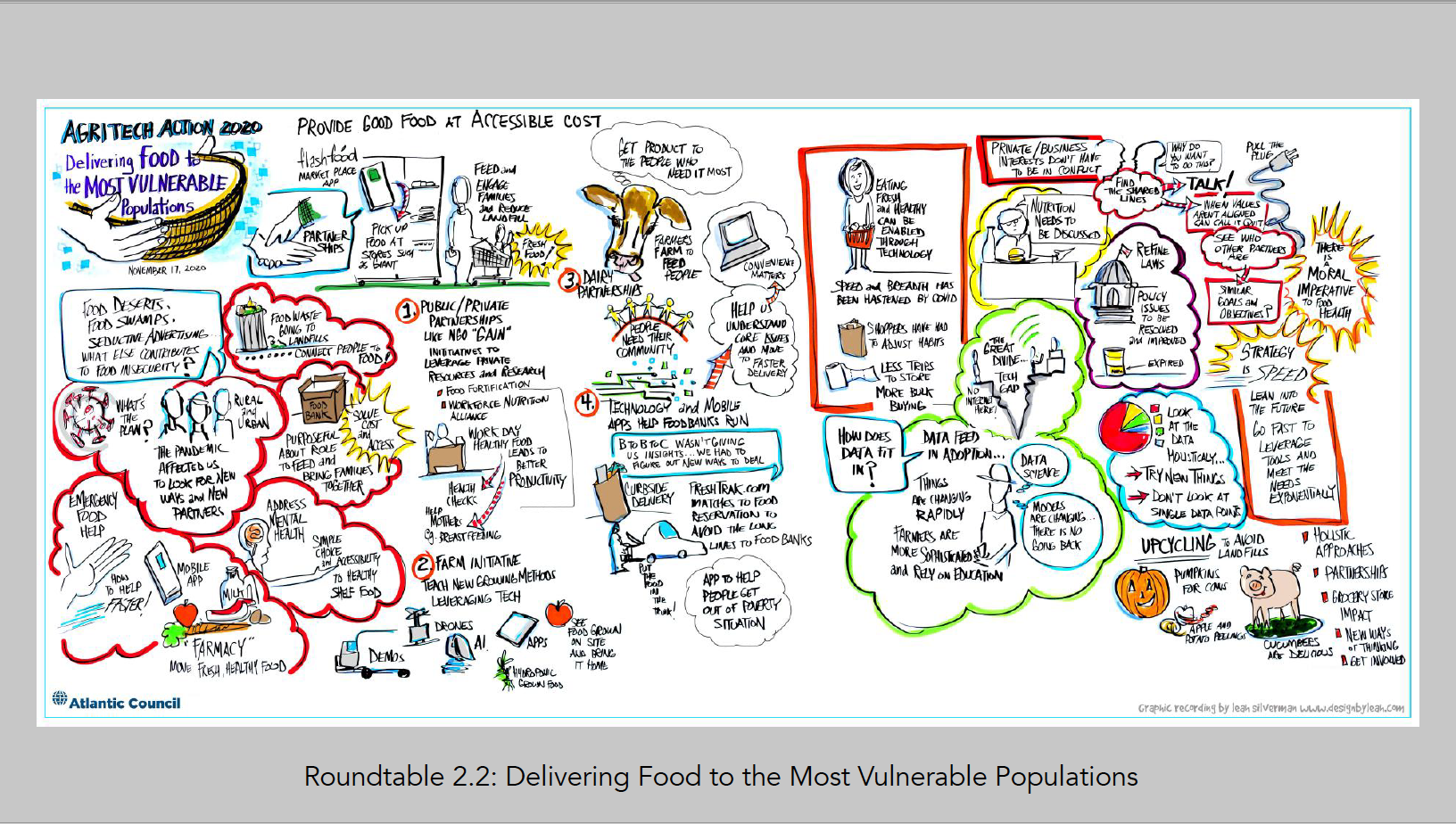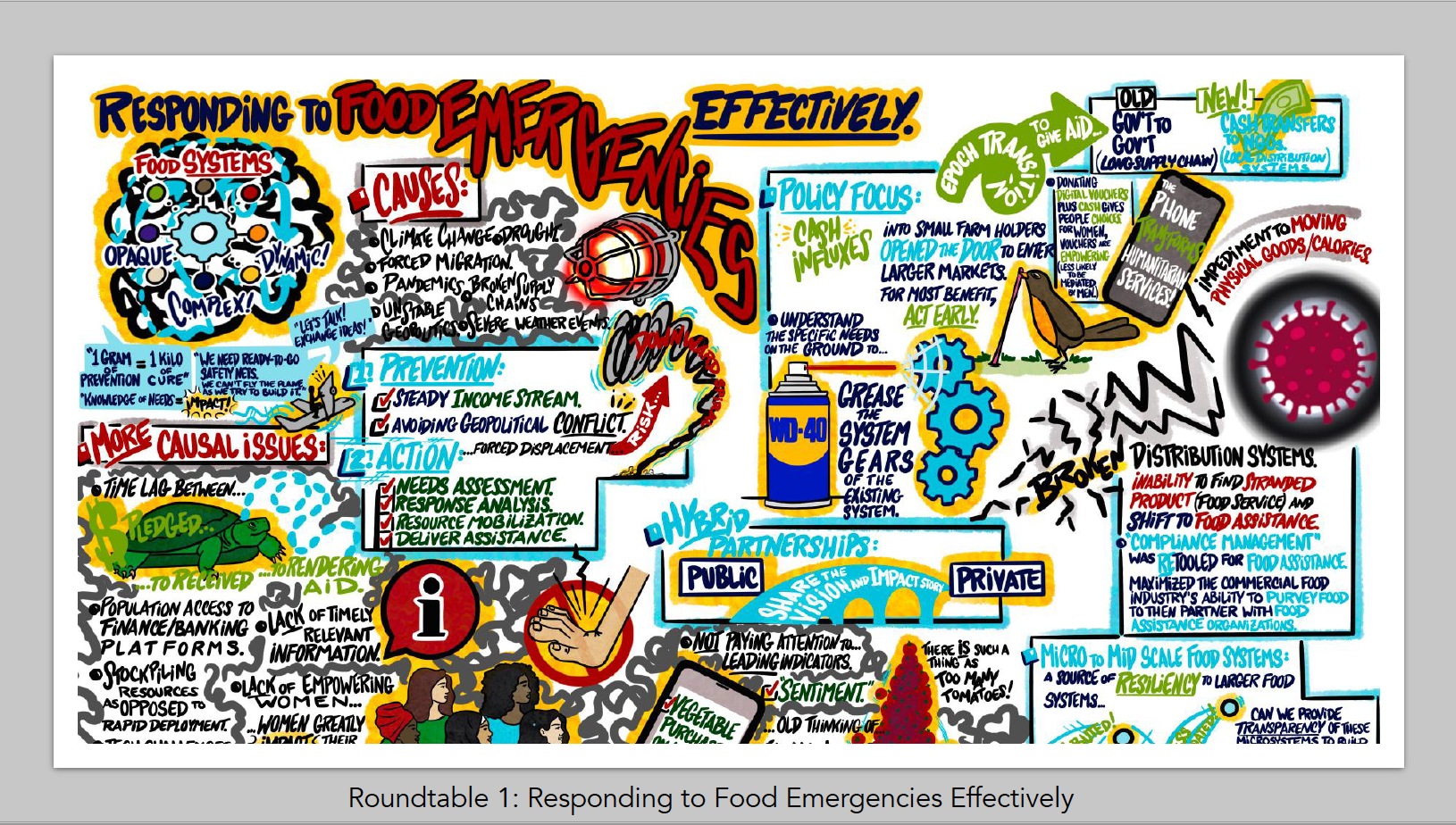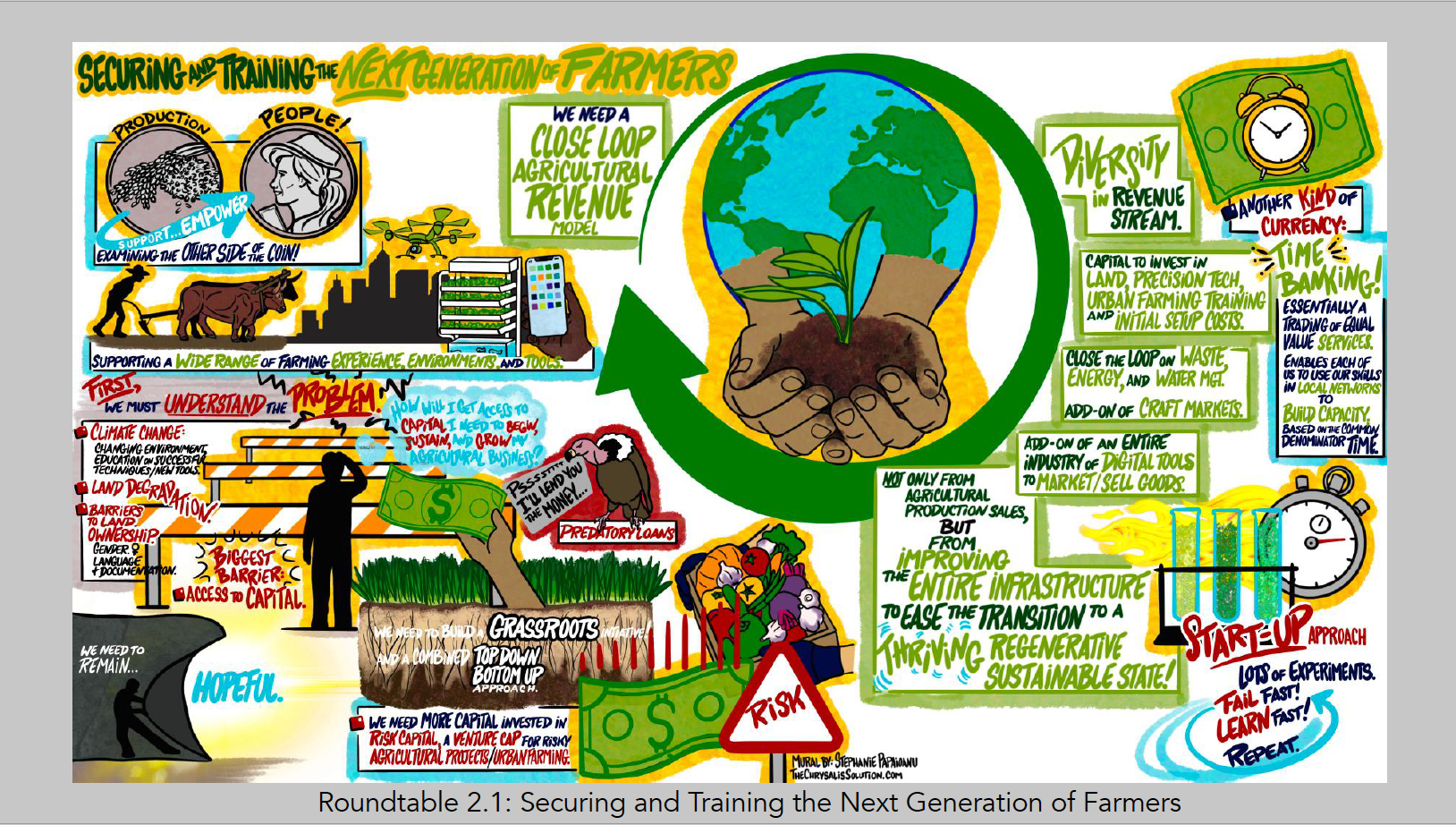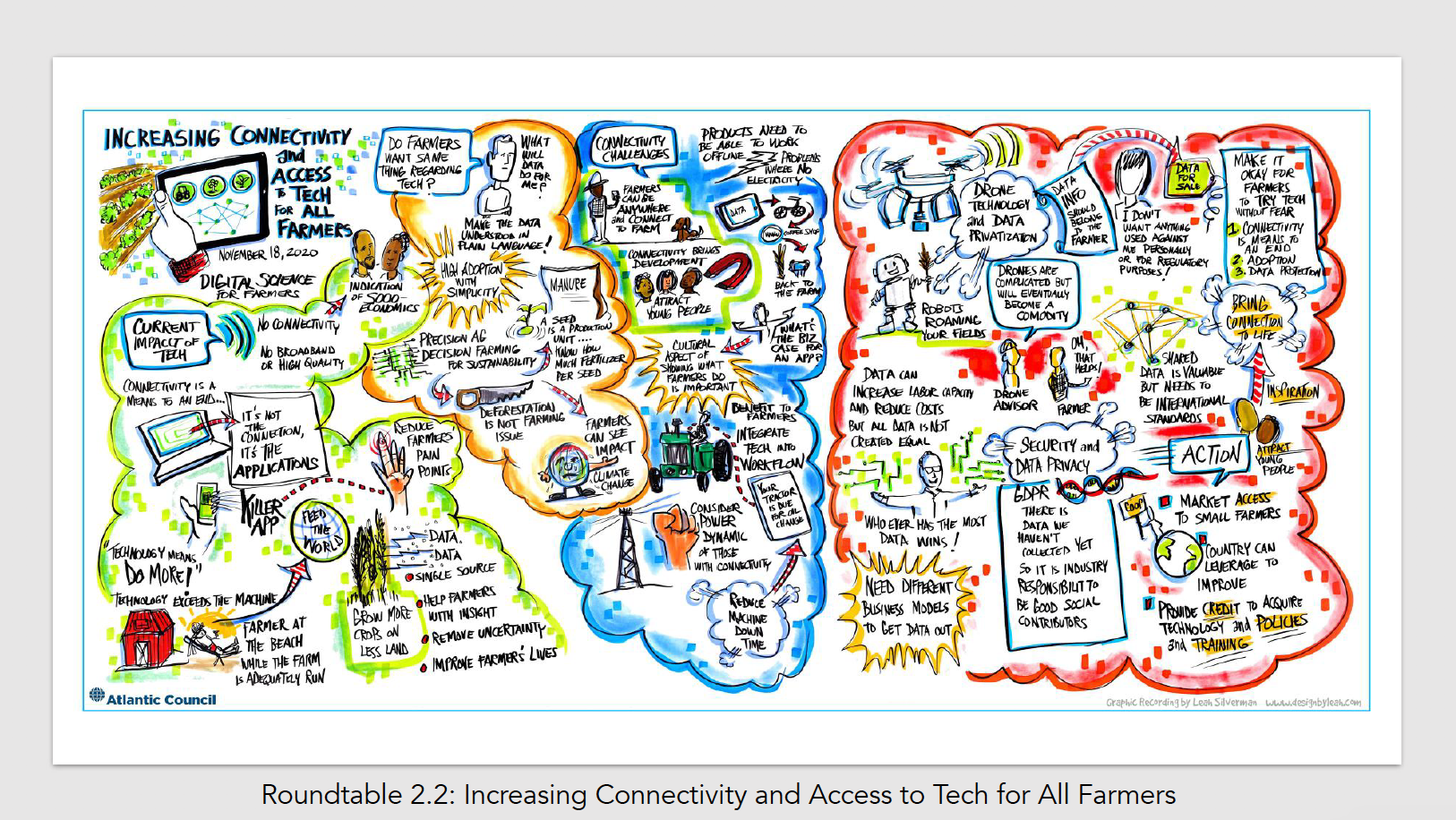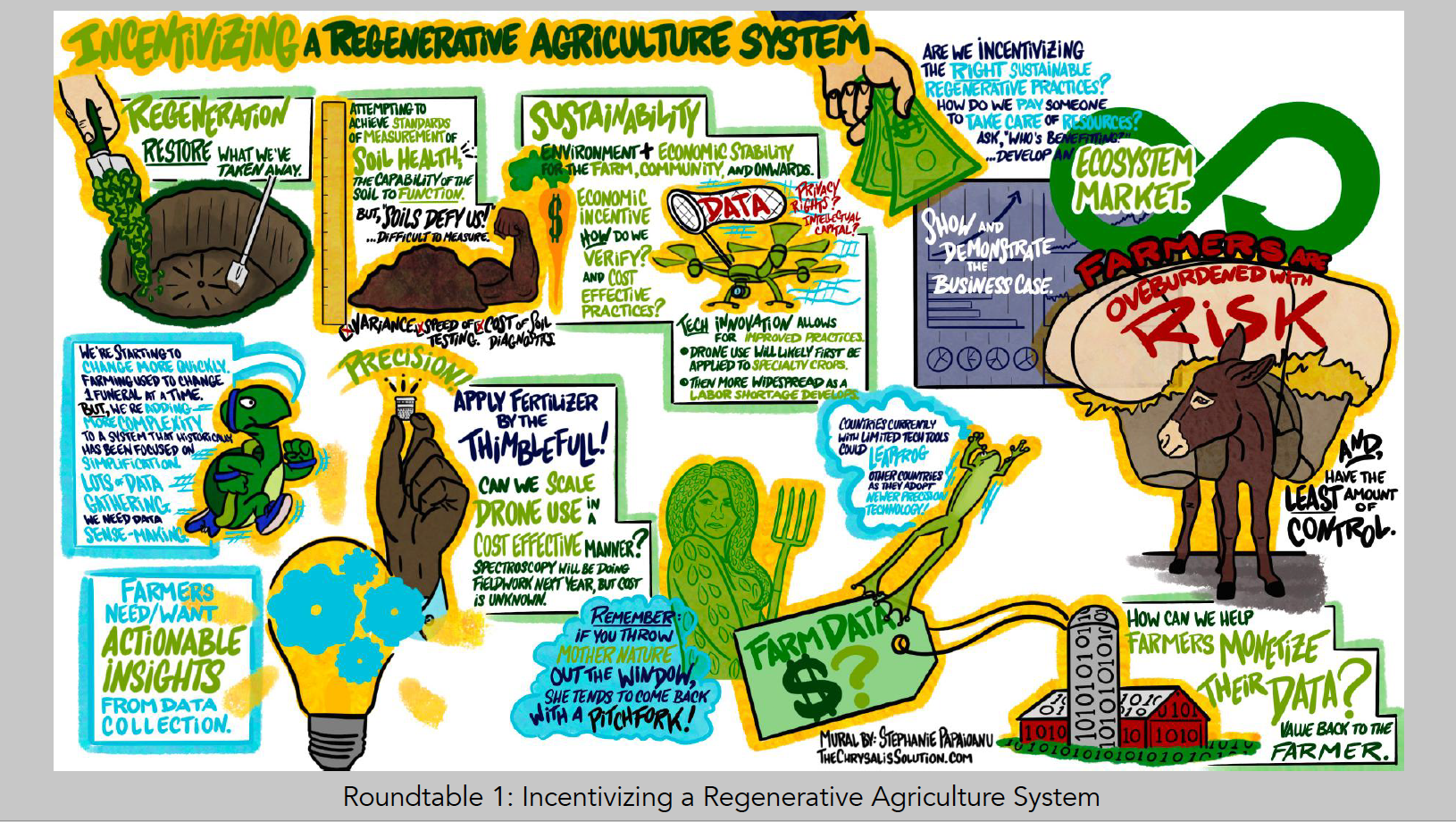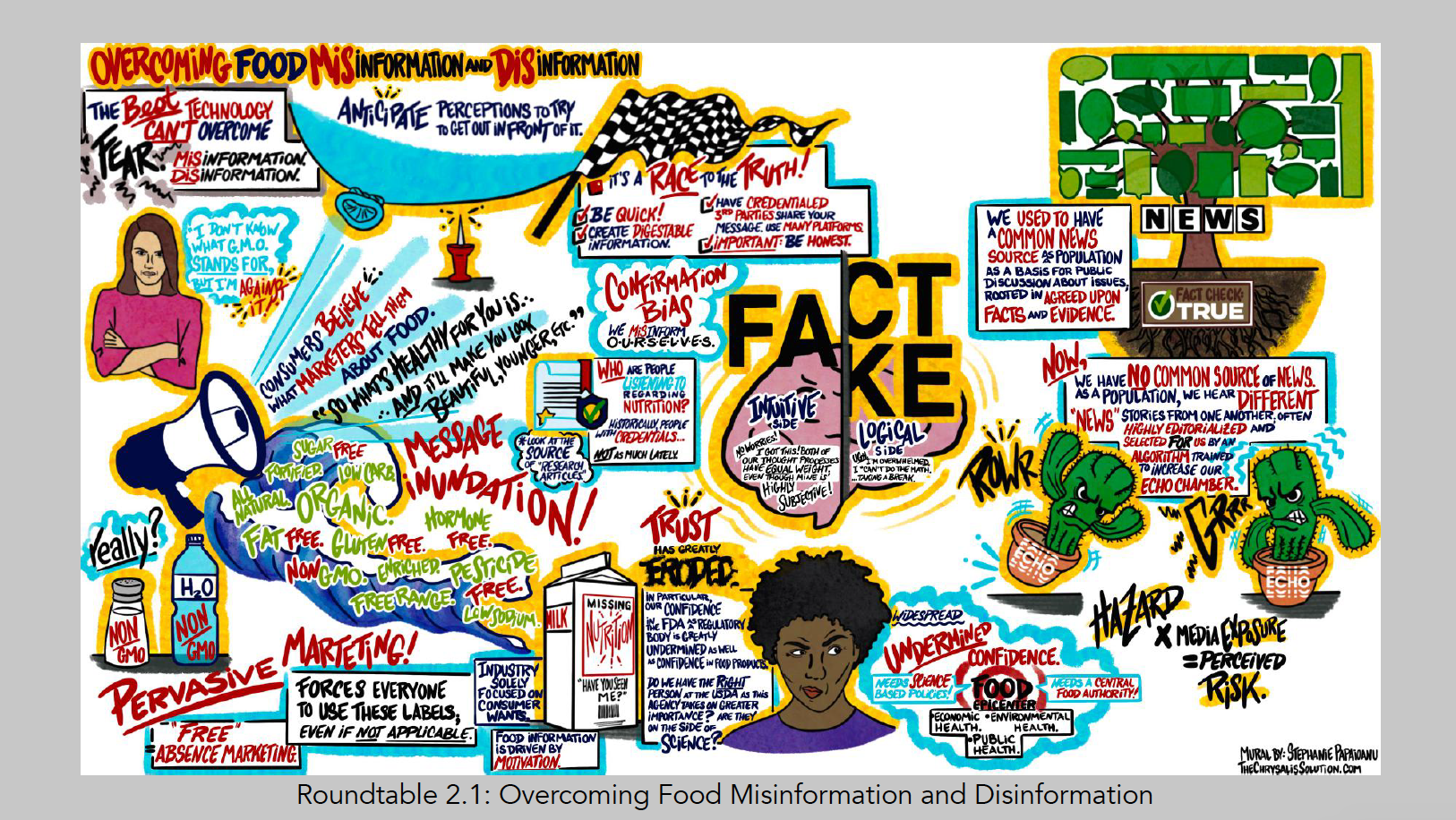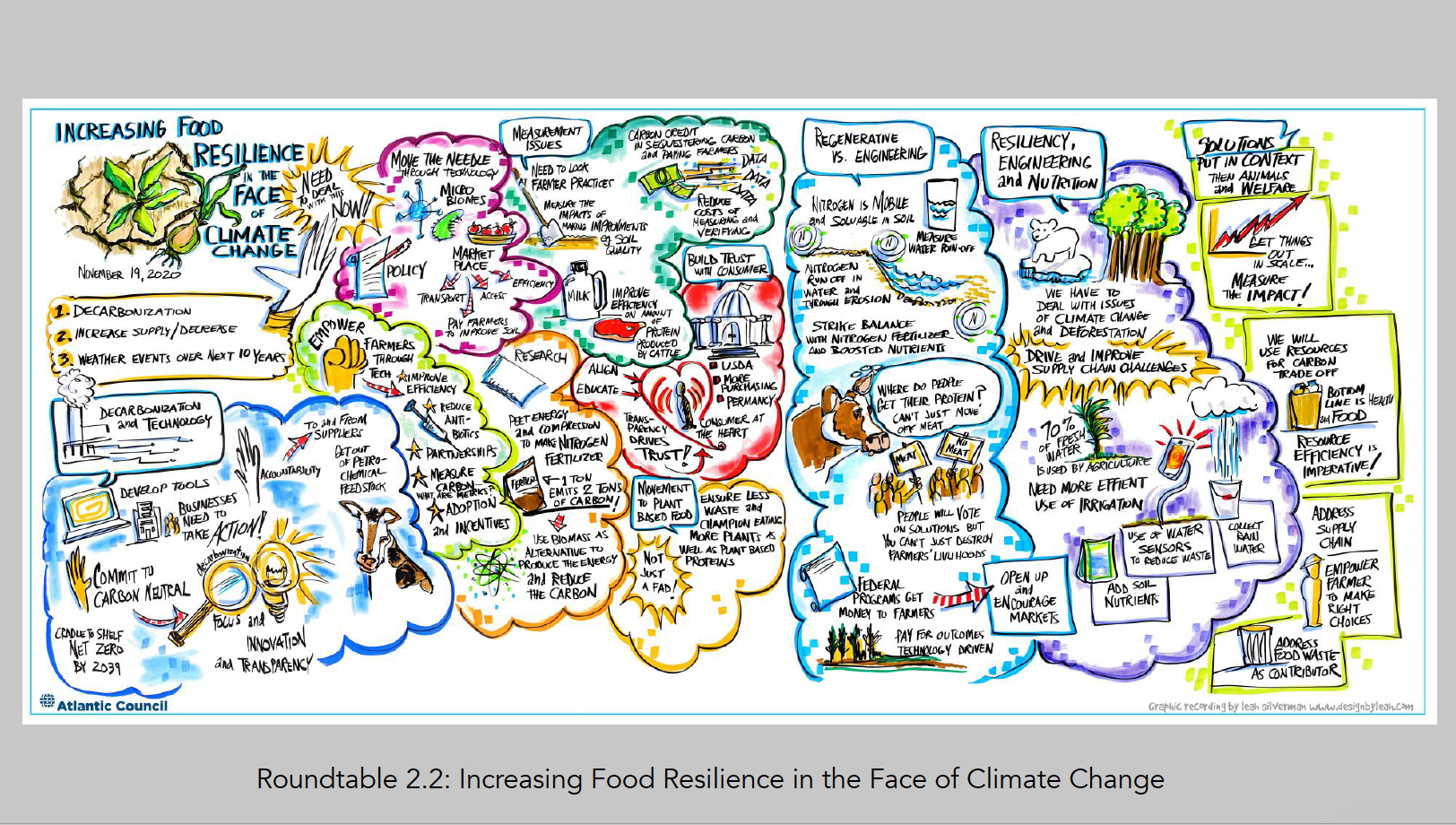Event Recap | AgriTechAction 2020
Public investment in agriculture research and development has declined in the United States in the past decade, despite major challenges such as climate change increasingly damaging the food system. Food insecurity not only weakens the U.S. internally, but increases economic and political instability across the world, posing an additional threat to U.S. national security. It is imperative that innovation in agriculture remains a priority, and a new infusion of interest in the agriculture sector from the technology and data sector can accomplish this.
Technology has radically transformed and will continue to change the way agriculture and the complex, ill-defined networks of our food system function, both domestically and internationally. To fully leverage the power of the opportunities available and in the near future, and to monitor for unintended effects, connections between the tech and agriculture industries are essential. While innovation in the AgriTech space has been accelerating, there is a disconnect between leaders in technology and farmers on the ground, especially in ensuring that smallholder farms have access to these new innovations.
To integrate the agriculture and technology industries, the GeoTech Center hosted AgriTechAction 2020, a three-day conference that explored the relationship between agriculture and technology, with the goal for future solutions to food security challenges to be accessible and sustainable for all. In the conference, experts and leaders in agriculture, technology, and national security came together to discuss and help guide the further deployment of data and technology in agriculture; specifically in food production, processing, distribution, security, efficiency, and sustainability.
“Food security is national security”
At the beginning of Day 3 of AgriTechAction, Daniella Taveau, Nonresident Senior Fellow at the GeoTech Center, described the complexity of the agroindustry and the system in which it operates. For the first time, and as an effect of the pandemic, the public opinion has become more aware of food insecurity challenges and how “food security is a national security” issue. This was a key point not only during AgriTechAction, but during our November 18 GeoTech Hour Data, Security and the Global Food System.
On the other hand, Ms. Taveau stressed the negative effects of the growing disinformation in the agroindustry. In this discussion, GeoTech Senior Fellow, Dr. Linton Wells II, analyzed the food stability challenge from a national security perspective and he stressed the importance of appropriate data management tools. Mr. Well also confessed he had not been able to find a solution to disinformation campaigns – however highlighted that restoring trust will be key in the success of the incoming U.S. administration. In parallel, both Ms. Taveau and Mr. Well stressed the significance of “training people to adapt and pivot,” a skill they see as crucial for a business to survive, where business owners take advantage of what they already know, understand the new circumstances, build a new strategy and apply it.
Securing the seed-production chain
In a separate conversation, President of Global Seeds for Syngenta, Jeff Rowe, highlighted the importance of greater collaboration within the seed chain actors and the need to constantly explore potential partners as the industry innovates and develops new technologies. Mr. Rowe also argued in favor of seed gene editing and stressed the critical importance of resilient and adaptable seeds, as the impact of climate change on the agriculture sector worsens, and as farmers face increasingly variable environmental conditions. Finally, Mr. Rowe spoke about data management innovation as a key technology for future crop growth sustainability and listed artificial intelligence, data science, and new algorithms as technologies with the potential to revolutionize farmers’ traditional process of deciding when, where, and what seed to plant. You can watch the entire interview here.
De-risking and scaling up tech solutions for farmers
At the end of AgriTechAction, roundtable moderators and GeoTech Director, Dr. David Bray, served to close AgriTech Action 2020. In the discussion, Thammy Evans, emphasized that there are already existing solutions to many of the food systems challenges identified and that “technology can help us” adapt. this goal can be reached, she said, by scaling up the technologies that already exist, creating awareness around them, and empowering the farmers to make use of those technologies.
In that same conversation, Andrew Mack defined the farming sector as a “data superpower in the making.” He noted there is a need for new business models to bring in diverse sectors and create more resiliency to climate change shocks and inherent effects of a globalized community. There is a need to connect innovation with sustainability and profitability, he said – “agriculture is still a bad business for too many people around the world.”
Non-Resident Fellow Dr. Melissa Flagg described the high complexity of the challenges and solutions in regard to connectivity, as it relates not only to farmers, but to the heart of rural communities and impacts their social structures and lifestyles. She also highlighted the notable difference between the technology solutions implemented in areas with zero connectivity access, versus a low- or poor-quality access. Ms. Flagg believes introducing tech solutions to farmers will demand being especially thoughtful of the cultural aspects and echoed Ms. Evan’s sentiment to de-risk at the local level. She pointed to lessons learned from the military on rapid prototyping and deployment of new technologies, which could be applied to farmers in acute need.
Nikhil Raghuveera, Non-Resident Fellow at the GeoTech Center, highlighted how farmers have historically been disempowered and shut out of decision-making spaces. Tech companies, he said, used to believe the benefits of their technology would inherently trickle down to benefit everyone – Mr. Raghuveera believes this it is unfortunately not the case and that new efforts to bridge technology gaps must be made. He suggested a start-up mentality in combination with top-down approaches, which would allow for better and more equitable innovations.
As a conclusion to this panel and to three days of AgriTechAction, Ms. Taveau reminded the panel how technology will continue to move faster than policy. She also emphasized that farmers need access to data that is both accurate and protected, and that national security challenges and lessons learned are extremely relevant to current agricultural challenges.
Additionally, each panel of AgriTechAction 2020 was graphically recorded by two accomplished artists, Stephanie Crowley and Leah Silverman. You can view their recordings below.
You can watch Daniella Taveau, Thammy Evans, Nikhil Raghuveera and Claire Branley continue this conversation on Episode 11 of our GeoTech Hour linked below.
